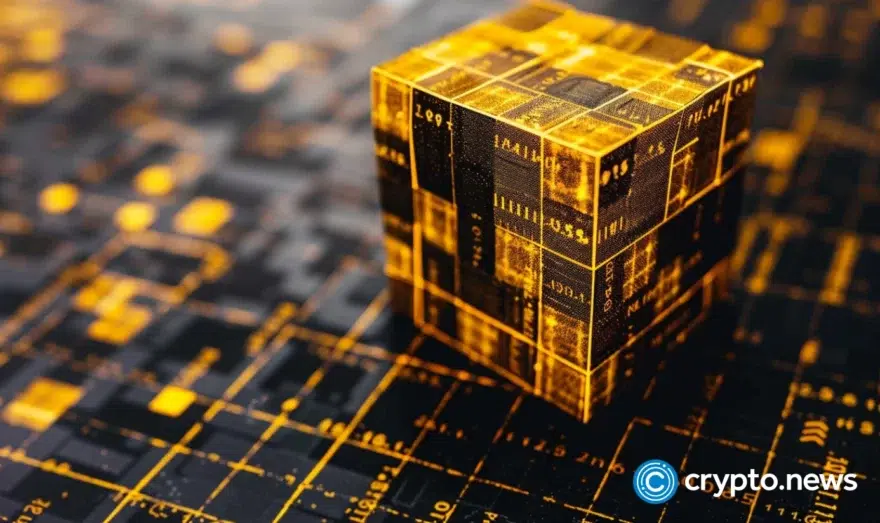What are utility tokens? Understanding their function and benefits

As crypto grows, so does the list of complex terms to understand — like utility tokens.
In this article, we’ll answer the question: what are utility tokens? We’ll break down how they fit into blockchain systems and why they’re such a big deal for making decentralized apps run smoothly. By the end, you’ll see why these tokens matter for the growth of the crypto space.
Table of Contents
Utility tokens explained
What is a utility token? A utility token is a digital asset that can be used to purchase some services on a blockchain platform. In many cases, utility tokens are used to purchase goods or services on blockchain platforms or access certain features such as using DApps.
One can’t tell how valuable a utility token is until it is listed on a liquid and public crypto exchange. The value of the crypto utility token can only be determined after such a utility token is available to the masses where later its value is determined through market forces.
Often, the value of a utility token narrows down to the value proposition of the network, how it is received by the community, the quality of the team, the uniqueness of the product, and whether the token is compliant with existing laws.
In recent years, Bitcoin (BTC) has evolved to be the world’s most valuable because it was the first crypto asset to demonstrate the blockchain technology. Ethereum is also finding success and is widely supported being the first smart contracting platform.
How do utility tokens work?
In the physical world, Alibaba can launch a utility token that enables users to purchase goods and services on the platform. Alternatively, utility tokens can be released by a project during a crowdfunding event, via an ICO or IDO, to raise money and actualize their vision/mission statement.
In this arrangement, the minted utility token enables investors to access their platform and transact, using the utility token as a means of payment within the platform. ICO/IDO tokens are not meant to generate profit but to increase the value of the project, create a network effect, and trigger mass interest in any of their product or value proposition.
Benefits of utility tokens
Think of utility tokens as your all-access pass to a blockchain project. They unlock special features, services, and content that regular users don’t get. Whether it’s a discount on platform products or rewards for participating through staking, these tokens give you more than just access — they give you a stake in the ecosystem. They allow you to engage directly with the platform, increasing your involvement and investment in its success. They’re also the fuel for transactions and smart contracts, ensuring that everything runs smoothly. Ultimately, utility tokens not only enhance your experience but also keep the platform running efficiently.
Examples of utility tokens
There are plenty of utility token examples that show how they add real value within blockchain ecosystems. As mentioned earlier, one prominent example is Ethereum (ETH), which is used to pay for transaction fees and computational services on the Ethereum network. Binance Coin (BNB) is another key player, offering discounted trading fees and access to a variety of services within the Binance ecosystem. Chainlink (LINK) is a great example too, enabling decentralized oracle services for smart contracts. Another example is Uniswap (UNI), which powers the decentralized exchange and allows users to vote on governance decisions. Lastly, Tether (USDT), while primarily known as a stablecoin, acts as a utility token on various platforms, enabling quick and low-cost transactions in the crypto space.
How are utility tokens created?
Cryptocurrency exchanges, staking protocols, metaverses, lending platforms, and sidechains are common issuers of utility tokens. Typically, the issuance model involves a limited supply of tokens, which are distributed among the project team, ecosystem, investors, and users according to pre-established rules. Some tokens are locked for gradual release over time.
Most popular utility tokens are listed through Initial Coin Offerings, where investors purchase tokens at a minimal price, helping blockchain startups raise funds.Investors are motivated by the possibility of unique privileges or potential token price appreciation post-ICO.
Another way utility tokens hit the market is through Token Generation Events. They’re time-limited events where tokens are created and made available for sale, either publicly or privately. TGEs aren’t just about fundraising; they’re also about making a splash and getting the community involved from day one.
Utility tokens vs security tokens
As mentioned earlier, utility tokens are often used to access a specific feature or service on a blockchain platform.
For example, the Augur platform uses its own token, REP, to allow users to trade predictions on the outcome of events. The Filecoin network uses its own token, FIL, to incentivize users to provide storage space on the network.
On the other hand, security tokens are those that represent an investment in a company or asset. They are often issued by companies during a Security Token offering (STO) and can be traded on secondary markets. Security tokens are subject to federal securities regulations under the SEC in the United States. An example of a security token is NEXO.
Both utility and security tokens have their own benefits and drawbacks. Utility tokens are often more volatile than security tokens since they are not backed by a physical asset or regulated by government agencies. Meanwhile, security tokens are often more stable since they are backed by a real asset and regulated by government agencies.















